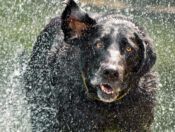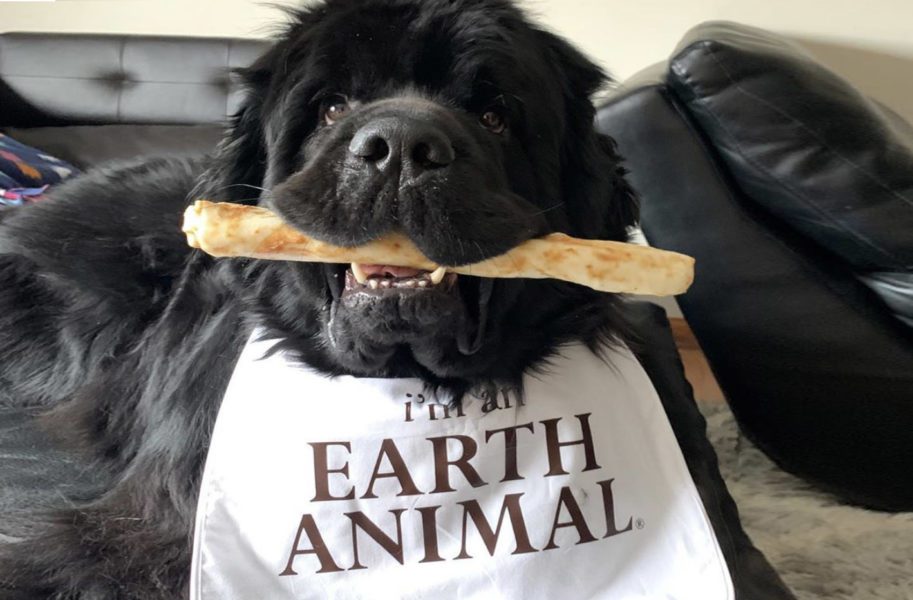Just like their humans, our dogs and cats can slip on a few pounds here and there and before we know it, they are dealing with a weight problem. And just as in humans, obesity in pets can lead to some serious health conditions, including high blood pressure, type 2 diabetes, heart disease, and cancer. Therefore, it is vital to your pet’s health to maintain the proper weight. So, what should you do if you notice that your kitty or pup has packed on some extra pounds? Interestingly, the answer is different for dogs than it is for cats.
How to Help Your Overweight Cat: An important first step to overcoming feline obesity is to take your cat to the veterinarian to check weight, blood, and urine to rule out thyroid or metabolic disorders. Once you know that your kitty’s weight problem is not physical, work with your veterinarian to create a healthy weight plan. Specifically, follow these tips from the veterinarians at PetMD.com:
- Feed your cat a meat-based diet. Cats are carnivores and lack the proper enzymes to digest carbohydrates. Essentially, feeding your cat foods rich in carbohydrates is a recipe for obesity as the carbohydrates will not break down and instead will be stored as fat. Dry cat foods by necessity are higher in carbohydrates, so choose wet food instead when trying to reduce your pet’s weight.
- Limit the portions you offer at each meal and avoid “free choice” feeding (petmd.com). Weight gain occurs when more calories are consumed than are exerted. Cats are small and therefore do not require many calories. Rather than putting food out and leaving it there all day for your cat to pick at as desired, feed your cat two to four small meals of approximately one ounce of wet food per meal.
- Choose food that is high in protein and fat. Again, cats cannot digest carbohydrates properly and, as carnivores, they require meat-based diets which are rich in protein and fat. Your cat’s diet should be 35% to 50% protein and 25% to 40% fat, with very little carbohydrate.
- Limit the amount and type of treats. It is nice to get a treat every once in a while, and your cat surely appreciates it. But if your kitty is overweight, consider giving him or her the treat of some extra cuddles or play time rather than food. If you do want to give an occasional food treat, offer small bits of cooked meat. Alternatively, we are big fans of Cat-Man-Doo Extra Large Dried Bonito Flakes. These human-grade fish flakes are an excellent choice for a treat as they are comprised of just one ingredient: fish. They contain no carbohydrates or filler of any kind so they are the perfect treat for your weight-conscious kitty.
How to Help Your Overweight Dog: As with cats, dogs should be evaluated by a veterinarian to rule out possible physical problems which may be causing weight gain. Once physical issues, such as hypothyroidism, are ruled out, you can proceed with a weight loss regimen to help get your dog back on track to health. Ask your veterinarian what your dog’s appropriate weight should be so you know your goal and follow these tips from the American Kennel Club to help your dog get and stay lean:
- Reduce calorie intake and avoid over-feeding with oversized portions or too many treats. Understand when your dog is truly hungry and when he or she is just begging as a learned behavior. Whenever you give your dog a treat, you are rewarding the behavior that came just before the treat. So, when your dog begs and you give a treat, you are reinforcing the begging behavior and creating a hard to break cycle. Offer the right amount of food (your veterinarian will guide you on this) at meal times and praise behavior with cuddles and kisses instead of snacks.
- Exercise, exercise, exercise! Being active is great for both you and your dog, as it has physical and mental benefits for you both as well. If your dog has been sedentary for a while, start slowly with daily short walks and build your way up to longer walks or jogs. Play active games with your dog, like fetch or frisbee, to keep your fuzzy friend moving and his or her mind engaged. And when weather won’t permit outside exercise, find a way to get going inside, like rolling a ball down a long hallway for a game of chase. Keep in mind that different types of dogs need different levels of exercise so, as always, check with your veterinarian to know what’s right for your best buddy.
- Ensure your dog is getting the proper nutrition. Weight loss is not simply about eating less and moving more. It is vital to ensure that your pup is getting the proper nutrients in order to keep him or her healthy. Dogs are omnivores and, as such, they can and should eat meat and plants. According to Dr. Cheryl Yuill of VCA Animal Hospitals, feed your dog a high-quality diet with real, whole foods that contains less than 350 calories per cup.
For both dogs and cats who could use a little weight loss, consider Earth Animal’s Fat Busters Home Remedy. Mix organic apple cider vinegar into food or drinking water each day in the following amounts:
Cats and small dogs: work up to ½ tsp
Medium dogs: 1 tsp
Large dogs: 1 ½ tsp
Additionally, consider supplementing with Lecithin Granules in the following amounts:
Cats and small dogs: 1 tsp
Medium dogs: 1 ½ tsp
Large dogs: 2 tsp
And Vitamin B6 in the following amounts:
Cats and small dogs: 25mg
Medium dogs: 50mg
Large dogs: 75mg







